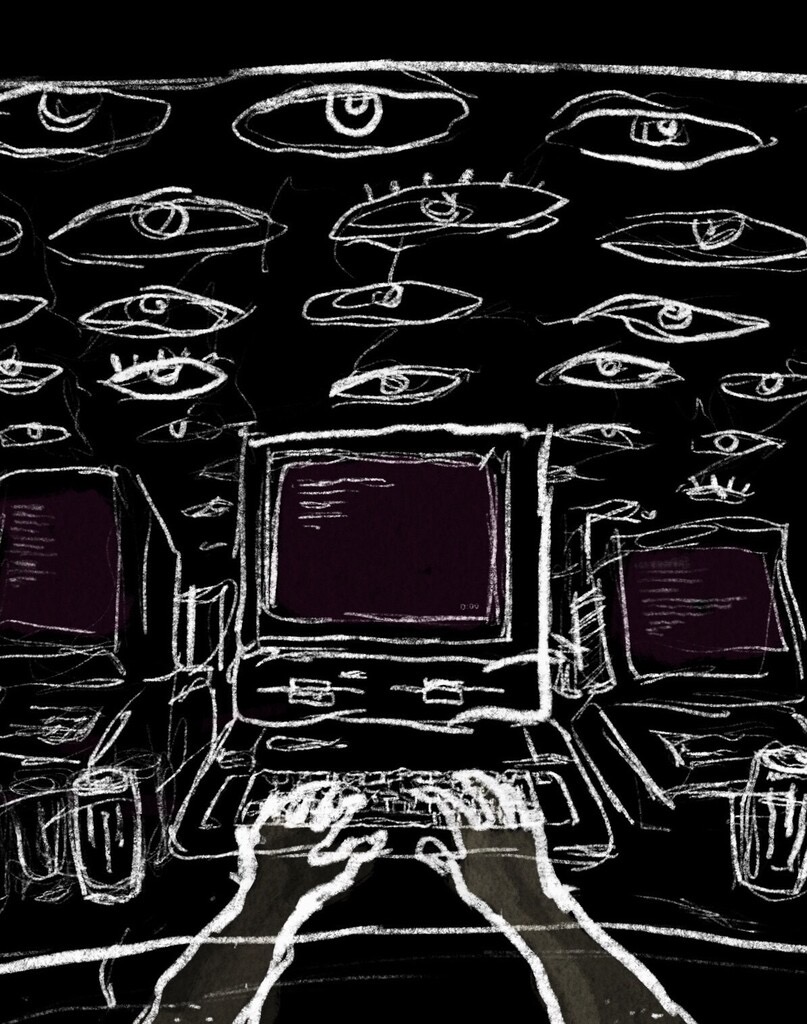OPINION: The video games in our houses
November 13, 2020
 This
piece represents the opinion of the author
.
This
piece represents the opinion of the author
.

For the gaming enthusiasts, Cyberpunk 2077 has been one of the most anticipated titles of the year. Meant to be released in May 2020, it was further delayed to November and then even to December. At this point, we are not sure whether or not we will play the latest creation by CD Projekt Red, a Polish game developer, by the end of the year.
The news has saddened lots of gamers, but the problem should not be regarded only from the perspective of the customers and how we won’t get the chance to enjoy a fantastic-looking open-world role-playing game. For so long, we have tried to think that everything we do must be done for the customer, who is “always right.” It does not matter precisely what is happening inside the gaming industry, because at the end of the day, if we can satisfy the audience who is committed to buying our games, then everything is fine.
While trying to satisfy certain release deadlines, we must ask ourselves what is happening with the laborers that put in the work to develop those games. While we are waiting for Cyberpunk to arrive on our consoles, are game designers and programmers supposed to put in overtime? Most likely yes, and even the CEO of CD Projekt Red, Adam Kicinski, has been open about the required overtime put into the project. The issue is larger than just the production of this particular game, but rather it affects the industry as a whole. Overtime work has already been so widespread among game developing companies that it has gotten a name for itself, “crunch,” and it has received a great deal of attention since the early 2000s.
The culture of crunch is not new, and in the gaming circles, one could point back to the EA spouse blog post from 2004 to read about what it means to crunch at a big developer. It does not mean only working one or two hours more in order to finish some tasks, but also sleeping in the office, not getting enough exercise or nutritious food or even not seeing one’s family for a good amount of time. The problem gets worse when deciding to read through all the comments on this post, in which a variety of workers in the industry, their spouses or their families go at lengths to describe what is like working at those companies. Some common themes are tiredness, stress, lack of overtime pay and just lack of interaction with loved ones.
Since 2004, things might have gotten a bit better in some industries. After talking to Declan Peach, the vice secretary of Game Workers United UK this weekend, he told me that companies seem to be more careful about crunch, trying to prevent it when possible. Still, the industry has not been free of controversies, and in the past years, we have seen how Bioware was accused of subjecting their employees to severe crunch periods in order to produce the game Anthem. We could spend an endless amount of time discussing the controversies at play when developing video games and how the workers are the ones that are exploited, while the fat cash goes into someone else’s pockets. Declan encouraged me to think more critically when playing a certain game, and to try to investigate how it was produced and what can be done to make everything better. On the production site, workers could follow the model of Games Workers United and get organized in an union to fight for their demands and to increase their representation.
On the consumer side, we could try to be more mindful and fight against this culture of needing to receive a specific entertainment product at the right time, right now. Unfortunately, we have become easily irritable when we do not get the newest product every year, at a very specific time. Maybe it is time to change the approach and understand the production and supply chain, as well as the toxicity that exists in order for us to get our devices every year.
Behind every game, there is a worker that puts in a lot of overtime work to deliver what we have in our library of games. Before we go at lengths to criticize a developer for not giving us what we wanted on time, let us put that energy into addressing crunch culture and profit-maximizing management in the industry. At the end of the day, the workers’ lives are more important than Cyberpunk 2077. And at the end of the day, we already have too many unplayed games in our library. So, we should rather visit those, while putting the energy into working and fighting for the people.
Radu Stochita is a member of the Class of 2022.

Comments
Before submitting a comment, please review our comment policy. Some key points from the policy: